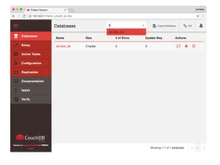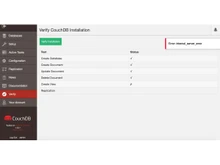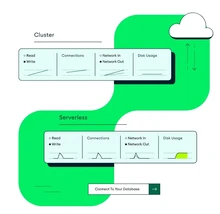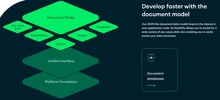CouchDB is a NoSQL type database that gathers and stores data in JSON format. It uses schema-free data model to simply the data record management across several devices and browsers. MongoDB is a document-based database for querying and indexing various data types. For analyzing data, it supports Ad hoc data queries, indexing, real-time data aggregation, etc. Let's find out which one is better for you through an in-depth comparison of these two NoSQL type databases.
CouchDB vs MongoDB: An Overview
Both CouchDB and MongoDB are popular database management software for querying your data. From gathering data from different databases to replicating and indexing it, everything can be done with these two databases. However, there are multiple differences between CouchDB and MongoDB. For instance, the failover mechanism of CouchDB is slower compared to MongoDB. Similarly, MongoDB is better at handling bugs than CouchDB.
Let's discuss some other differences between them based on the following parameters:
- Document Format
- SQL Query
- Interface Used
- Storage of Data
- Replication Model
- Programming Languages
- Supported Devices
- Operating Systems
- Query Languages
CouchDB vs MongoDB: Pros and Cons
- CouchDB performance is better than MongoDB
- MongoDB can be used in containers which are not available in CouchDB
- ACID compliant transactions are supported only in MongoDB
- Native data visualization tools are offered by MongoDB and not by CouchDB
CouchDB vs MongoDB: In Terms of Features
- Document Format: CouchDB uses JSON format to store data and MongoDB uses BSON format for the same purpose. Many CouchDB alternatives utilize JSON format for storing data.
- SQL Query: MongoDB supports SQL queries when used through MongoDB connector. Whereas CouchDB does not support SQL queries.
- Interface Used: Both CouchDB and MongoDB use different types of interfaces. CouchDB has an HTTP/REST-based interface and MongoDB has a TCP/IP based interface. Most MongoDB alternatives provide this type of interface.
- Storage of Data: CouchDB and MongoDB use different ways to store data. In CouchDB, data is stored in the database via documents. As compared to CouchDB, MongoDB utilizes collections for storing data in the database.
- Replication Model: CouchDB and MongoDB use different models for data replication. CouchDB uses master-slave and master-master replication models. On the other hand, MongoDB uses only master-slave replication model.
- Programming Languages: CouchDB is written in Erlang programming language and MongoDB is in C++.
CouchDB vs MongoDB: Supported Devices
If you want to use the database on your mobile application, then you can prefer CouchDB. In addition to supporting various server environments and traditional desktops, CouchDB can also be used on various mobile applications including android and iOS devices. As compared to CouchDB, MongoDB cannot be used on any mobile device.
CouchDB vs MongoDB: Operating Systems
CouchDB clearly wins over MongoDB when it comes to operating systems. CouchDB can run on 8 operating systems and MongoDB can run on 7 operating systems. You can use CouchDB on CentOS/RHEL 7, CentOS/RHEL 8, Debian 10, Debian 11, Ubuntu 18.04, Ubuntu 20.04, Windows, and MacOS. Whereas MongoDB can be used on Amazon Linux 2, Debian 11 and 12, RHEL / CentOS 7, 8 and 9, SLES 12 and 15, Ubuntu LTS 20.04, 22.04, Windows, and MacOS.
CouchDB vs MongoDB: Query Languages
Both these databases use different languages to manage data queries. For this purpose, MongoDB offers its own query language, MongoDB Query Language (MQL) for querying the databases. Whereas CouchDB utilizes JavaScript as the query language and also provides RESTful HTTP API for creating, reading, editing, and updating databases.
CouchDB vs MongoDB: Which is Better?
Both CouchDB and MongoDB come with their own sets of pros and cons. Therefore, which database you should use totally depends on the features you want for gathering, querying, and analyzing your data.
You can choose CouchDB if you want HTTP/REST-based interface, JSON format to store data, and master-slave and master-master replication model. Whereas you can consider MongoDB if you want TCP/IP based interface, BSON format for storing data, ACID compliant transactions, and native data visualization tools to visualize data.


 5 Ratings & 0 Reviews
5 Ratings & 0 Reviews






















